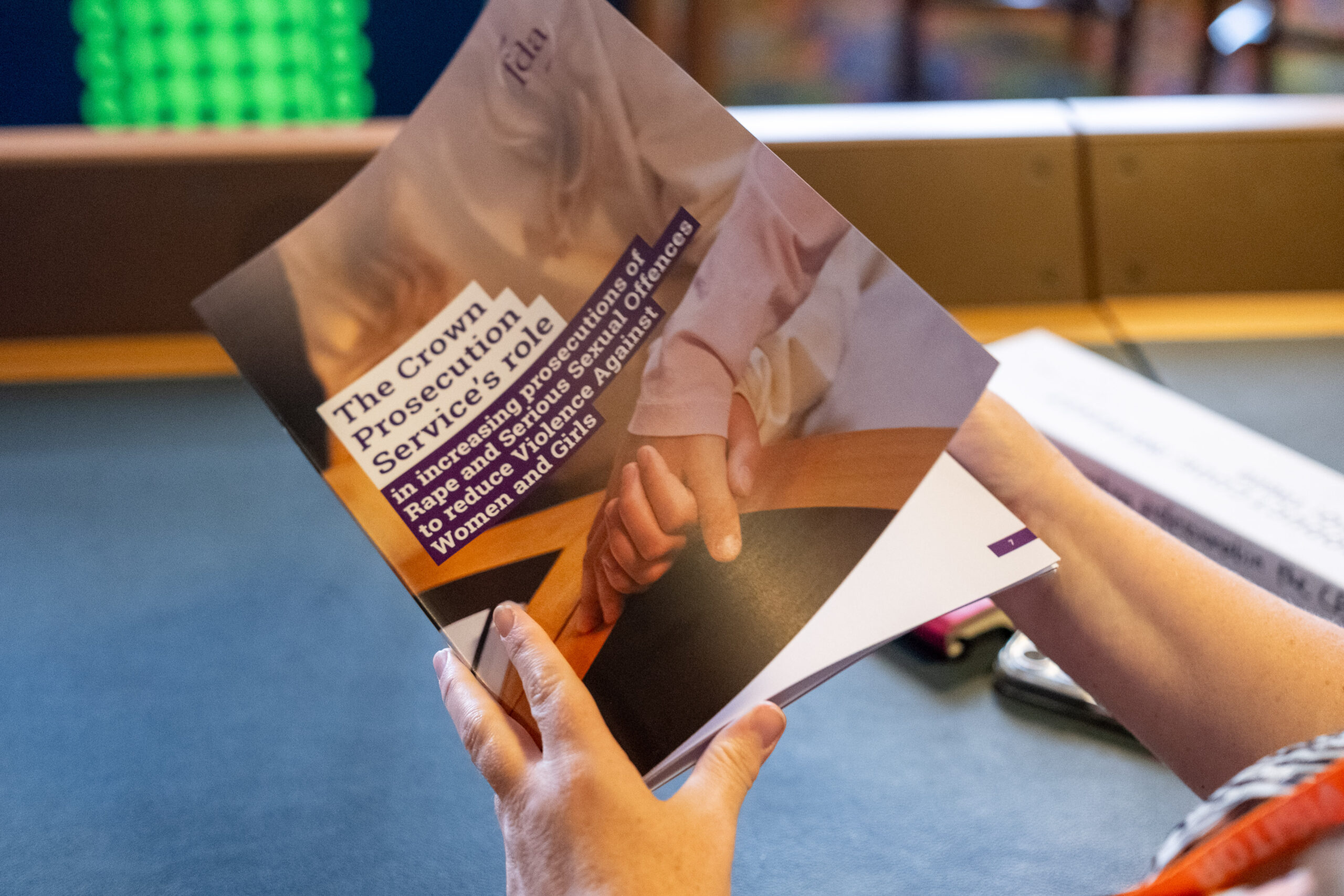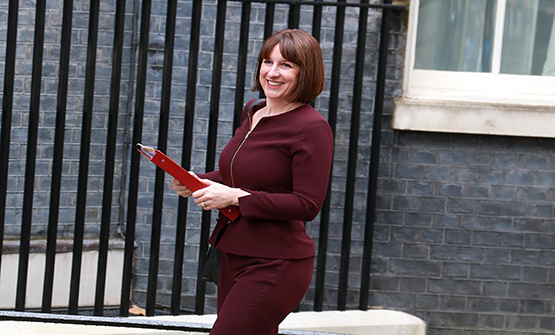Taking time for yourself
FDA rep Claire Bottomley tells Kay Hender how her own experience helped her to learn the importance of prioritising wellbeing, and the changes she helped bring to her department.

Once her “medication settled” and she began to feel better, Claire threw herself into work. A Procurator Fiscal Depute, Claire has worked in the High Court Sexual Offences Team for six years, during a time of unprecedented increased reporting. She acknowledges, “It is quite unusual to be working on these cases for so long, for vicarious trauma reasons” (trauma experienced by those who have worked with trauma survivors, or been exposed to distressing material). She realised that after often emotionally charged meetings with victims, she would often “just keep on the treadmill and start the next task”. Claire admits to taking on “far more than I could reasonably manage and it was not long before I burned out completely”.
This time, Claire realised things had to change and began to “prioritise self-care. We all owe it to ourselves and others to regularly check in with our feelings. Whilst mental ill health is normal, living a miserable existence is not”.
In Spring 2019, Claire expressed an interest in becoming a Mental Health Ambassador (MHA) in her workplace. As part of the Crown Office and Procurator Fiscal Service (COPFS) Mental Health Network, the MHAs work together to raise awareness as part of the broader departmental equality network.
At the same time, “by a strange coincidence”, Claire was asked by FDA Executive Committee member Fiona Eadie, then-FDA President and Secretary of the Procurator Fiscal Society (PFS) section, if she would consider being an FDA representative. “My manager was concerned about the demands of both roles, so I decided to merge them, focusing on FDA work from a wellbeing perspective.”
Claire found that her dual roles enabled her to “act as a link between the department and the union, working with senior leaders to progress wellbeing issues facing members and help implement visible and meaningful change”. The department’s mental health, stress and vicarious trauma policies have all been revised to incorporate feedback from staff, alongside input from the FDA PFS Council.
To help reach out to other members of COPFS staff, Claire helped to set up a session on mental health awareness, which was opened up to the whole country. “I managed to get us support from a team of psychologists from Carstairs, a secure hospital in Scotland, where criminals with severe mental health issues are treated. They delivered a presentation on employee wellbeing, vicarious trauma and trauma informed practice (the promotion of a culture of safety and empowerment). They also provided examples of strategies they adopt in their own practice such as ‘clinical pause’ which is used to effectively step back from a difficult situation or case, take a breath and devise the best way forward”.
In August 2020, a Mental Health First Aid programme was launched. Claire had met Laura Gibson, Wellbeing Sergeant at Police Scotland, at a seminar and had been impressed with her work, rolling out mandatory mental health training for more than 17,000 police officers. “I thought: We need a bit of that as well. Criminal prosecution is an incredibly niche area within the civil service and legal profession. It hit home for me whilst working in sexual offences, supporting incredibly vulnerable victims, and how that immense pressure can take its toll”.
Laura was qualified to carry out Scotland’s Mental Health First Aid (MHFA) training and facilitated the initial MHFA course at COPFS – a course which is now open to all staff across the Service. “It fitted really nicely that we had a detective who could speak to us about the day job but go beyond the realms of what was operationally relevant – that really works to get colleagues on board. We don’t often get the chance to think about ourselves, we’re always thinking of how we can make things better for victims and witnesses and we do tend to neglect our own wellbeing.”
The COPFS Lothian and Borders Mental Health Network – the regional group of which Claire is a part – also launched monthly lunchtime wellbeing sessions on topics including yoga, meditation, aromatherapy, nutrition and stress. “We invited external speakers, generated conversation and considered different ways of looking after ourselves.” Claire singles out an occasion where “Dave Devanney from Fathers’ Network Scotland spoke on mental health, referring to his involvement in militarily decompression camps. His approach really got all the men talking.” One of the wellbeing session speakers was so impressed that she nominated COPFS for Workplace Wellbeing Initiative of the Year at the 2020 Scottish Wellbeing Awards. Unfortunately, due to Covid-19 the awards have now been postponed to 2021.
While the pandemic has brought with it significant mental health and wellbeing concerns, the lunchtime wellbeing sessions have continued virtually throughout this period, Claire confirms that they are now reaching employees nationally. “We have plans to implement a formal programme next year, working to address member feedback on isolation”.
Claire is also liaising with COPFS Legal Trainers to work towards integrating mental health training within existing courses run by the department, such as those for new starters, trainees and managers. She was “inspired by the FDA Learn webinars, as they were so quick off the mark in adapting to virtual learning and showcasing the benefits”.
While Claire acknowledges there is still a huge amount of work to do in continuing to champion mental health and wellbeing, she considers that “there’s been a definite culture shift in the last year. When I joined the Mental Health Network, and FDA Council, I did go in ‘all guns blazing’ because of my own personal experiences… but patience has been key and has allowed me the time to reflect on the huge achievements we have achieved thus far. Following the recession, the department has faced challenges in relation to resourcing, budgetary constraints and pay, with members feeling overworked and undervalued, and therefore staff wellbeing has been an incredibly difficult area where members feel strongly”.
Claire hopes the Mental Health Network is “Encouraging colleagues to be more proactive in implementing positive working practices and reasonable adjustments, whilst educating themselves to recognise symptoms in themselves and others”.
“I can definitely see that more of my colleagues are beginning to engage in new initiatives and approach the conversation differently. Mental health and wellbeing is relevant to everyone. I’ve been very honest about my own experiences and hopefully this has helped in some way to inspire others and shape our continued approach to wellbeing.”
Related News
-

FDA welcomes additional CPS funding to support victims of crime
The FDA has welcomed that the CPS will be receiving additional resources. The announcement follows the recent publication of the FDA’s report examining the CPS’s role in increasing RASSO prosecutions.
-

Budget response: FDA welcomes HMRC investment but raises concerns over ongoing departmental efficiencies
Budget response: FDA welcomes HMRC investment but raises concerns over ongoing departmental efficiencies
-

FDA tells MSPs uncertainty around jobs regarding future of new education body has been “very difficult”
The FDA has expressed concerns over job security, pay and a long hours culture to the Scottish Parliament, regarding the creation of a new education body in Scotland.